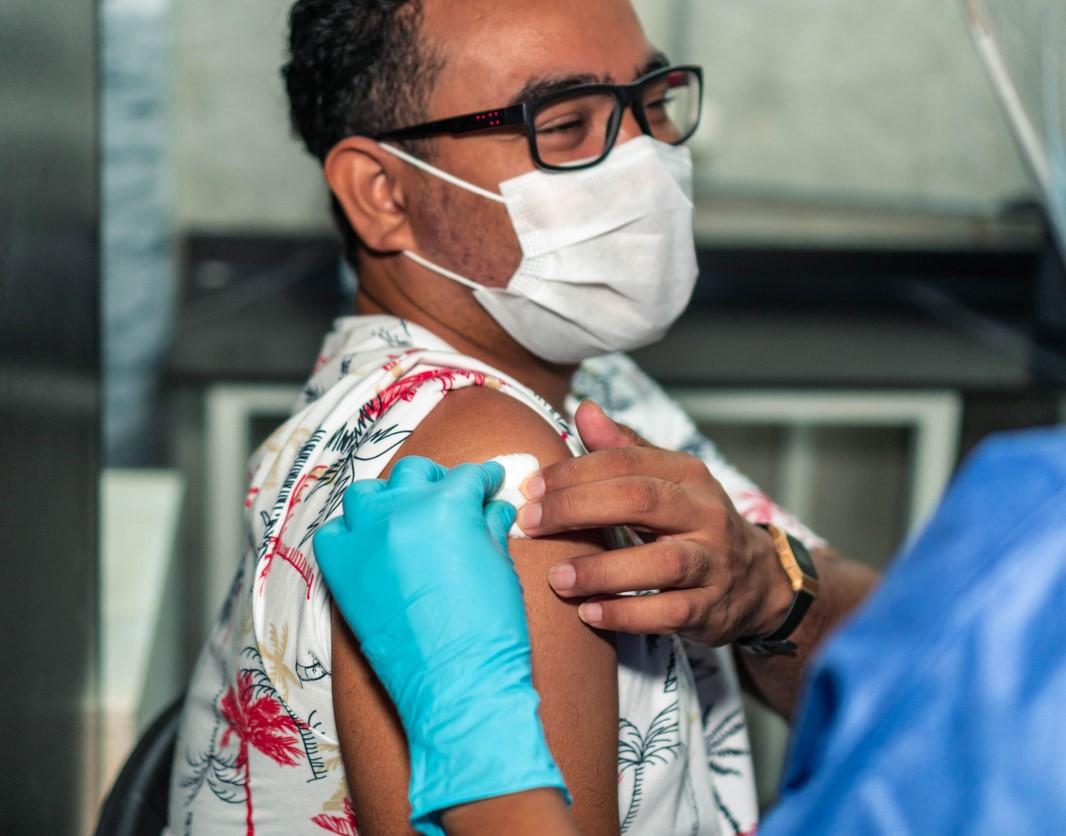The Food and Drug Administration (FDA) vaccine advisory group today recommended streamlining COVID-19 vaccine campaigns by offering just the newer bivalent (two-strain) versions of the vaccine for both primary and booster series.
The measure, which passed unanimously, capped off a full day of reviewing the latest safety and efficacy data from all of the companies that produce vaccine for the US market, as well as analyses from government scientists on what next-generation vaccines might look like. The experts also had robust discussion about a shift to annual COVID-19 vaccine shots and a regular system for gauging when vaccine composition changes are needed, similar to that for flu vaccines.
Deliberations by the FDA Vaccines and Related Biological Products Advisory Committee (VRBPAC) about the next vaccine steps are occurring during a gray zone between the acute phase of the pandemic and endemic circulation of the virus.
Simpler strategy, reassuring findings
The original Wuhan SARS-CoV-2 strain targeted by the monovalent vaccine was quickly surpassed by new variants, with Omicron arriving on the scene in late 2021, which is still evolving and circulating as several subvariants, some of which are more transmissible and more immune evasive.
Shortly after the FDA approved the bivalent booster for emergency use in August, it removed the emergency use designation for the monovalent boosters.
Ahead of the meeting's main discussion, Jerry Weir, PhD, who directs the viral products division in the FDA's vaccines research office, said the studies that measured the impact of the bivalent vaccines all point in the same direction, finding additional benefits. "It's remarkable to see that level of uniformity," he said.
Last June, bivalent discussions centered around the need for cross-reactivity against the original virus, which doesn't circulate anymore, he said. Weir emphasized that the goal isn't to chase variants, but to make improvements in the vaccine that are feasible. If a new pathogenic variant or subvariant arises, vaccine composition can change on an ad hoc basis, similar to the process used when the 2009 H1N1 flu vaccine arrived on the scene. "We can be flexible and be prepared to respond as needed," he said.
In response to VRBPAC questions about the need for the ancestral strain in the streamlined vaccines going forward, Weir said there aren't sufficient data on a monovalent Omicron vaccine, but the topic will likely be considered at the group's next meeting.
Vaccine schedule, strain selections deliberations
In its briefing documents ahead of the meeting, the FDA outlined a possible vaccine schedule, along with a framework for vaccine strain selection, similar to the process for flu shots. Though the two issues weren't slated as voting measures, the FDA asked its expert group to discuss the two issues.
Though the group reached consensus on the main voting question, much of the more vigorous debate came during talks about these two discussion items, with several members making the point that flu and SARS-CoV-2 are different viruses with unique characteristics that might require different vaccine consideration and processes.
Weir likened the parallels to flu as a placeholder. "You can take some lessons from it [flu], but you know it's going to be different."
Some members said it's premature to say COVID-19 has seasonality and questioned whether there are enough data to settle on a schedule consisting of one dose for most people in the fall to provide optimal protection. Peter Marks, MD, PhD, director of the FDA's Center for Biologics and Research, said the virus is starting to show some seasonality, but a major consideration is when hospitals would be most overwhelmed, which is in the winter when multiple respiratory viruses are circulating.
You can take some lessons from [flu], but you know it's going to be different.
VRBPAC members today also raised concerns about the whether the FDA's vaccine schedule and strain selection plans—which would greatly affect manufacturing—would have an outsized and appropriate impact on the global COVID vaccine situation.
Weir acknowledged that the world is in a different situation than for flu, because variants don't sweep across the world like flu strains do. The way COVID-19 strains behave leads to a diverse SARS-CoV-2 variant picture, with regulatory agencies in different moments in their COVID vaccine talks. But he added that although US officials are eager to work with their global counterparts, federal officials are prepared to do what's best for Americans.




















